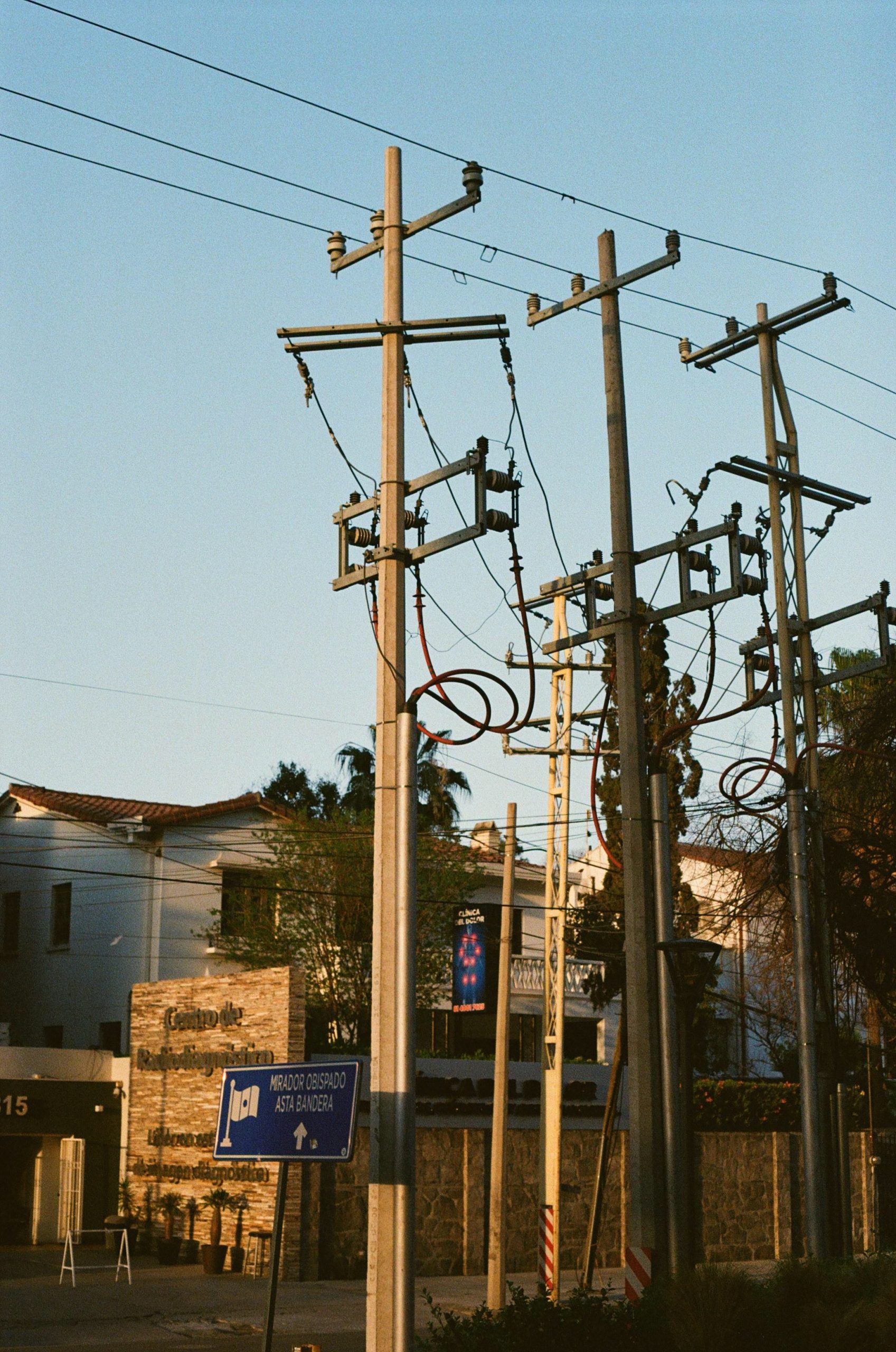Utah’s energy and utilities laws and regulations are complex and ever-changing, making it crucial for businesses in the state to have a comprehensive understanding of these important aspects. This article aims to provide you with valuable insights into the intricacies of these laws, empowering you with the knowledge needed to navigate the legal landscape with ease. From renewable energy initiatives to utility rate structures, we will explore a range of key topics to ensure that you are well-equipped to make informed decisions for your business. By the end of this article, you will have gained a deep understanding of Utah’s energy and utilities laws, positioning you to confidently navigate the legal requirements and seek expert assistance where necessary.
Overview of Utah’s Energy and Utilities Laws
Introduction to energy and utilities laws
Utah’s energy and utilities laws play a crucial role in regulating and overseeing various aspects of the state’s energy sector. These laws encompass a wide range of areas, including electricity, natural gas, water, and telecommunications. The objective of these laws is to ensure the safe, reliable, and affordable provision of essential services to the residents of Utah.
Importance of energy and utilities regulations
Energy and utilities regulations are of immense importance as they help safeguard the interests of consumers, promote fair competition, protect the environment, and ensure the efficient use of resources. These regulations create a framework that governs the generation, transmission, distribution, and delivery of energy and utilities. By establishing guidelines and standards, these laws aim to maintain transparency, accountability, and sustainability within the energy sector.
Utah’s approach to energy and utilities regulations
Utah has adopted a comprehensive approach to energy and utilities regulations, with various agencies being responsible for overseeing different aspects of these sectors. The key regulatory agencies in Utah include the Utah Public Service Commission (PSC), Utah Division of Public Utilities, Utah Department of Environmental Quality (DEQ), and Utah Division of Oil, Gas, and Mining. Each agency has its own specific role in ensuring compliance with regulatory requirements and promoting the well-being of consumers and the environment.
Key Regulatory Agencies
Utah Public Service Commission (PSC)
The Utah Public Service Commission (PSC) is the primary regulatory body responsible for overseeing the provision of public utility services in the state. The PSC ensures that utility companies operating in Utah comply with state laws and regulations, and it has the authority to set rates, approve new infrastructure projects, resolve complaints, and maintain the overall integrity of the energy and utilities markets.
Utah Division of Public Utilities
The Utah Division of Public Utilities is another important regulatory agency involved in overseeing the provision of utility services in the state. This division is responsible for regulating and supervising investor-owned gas, electric, and water utility companies. It works closely with the PSC to ensure that utility companies adhere to the highest standards of safety, reliability, and customer service.
Utah Department of Environmental Quality (DEQ)
The Utah Department of Environmental Quality (DEQ) plays a critical role in regulating and protecting the environment in relation to energy and utilities. It establishes and enforces environmental standards and permits for various energy-related activities, such as power plant emissions, water quality management, air quality control, and waste management. The DEQ works collaboratively with other regulatory agencies to ensure sustainable development and minimize the impact of energy production on the environment.
Utah Division of Oil, Gas, and Mining
The Utah Division of Oil, Gas, and Mining is responsible for overseeing the extraction, production, and distribution of oil, gas, and other mineral resources in the state. This division ensures compliance with regulations and permits related to drilling, well operations, resource extraction, environmental protection, and mine safety. Its primary goal is to promote responsible and sustainable development of Utah’s energy resources.

Electricity Regulation
Deregulation in Utah’s electricity market
Utah’s electricity market operates under a regulated framework, meaning that the rates and services provided by electric utility companies are subject to approval and oversight by the PSC. The state has not adopted full deregulation, which allows customers to choose their electricity provider freely.
Role of the PSC in electricity regulation
As the primary regulatory authority for electricity in Utah, the PSC regulates and approves rates and tariffs charged by electric utility companies. It ensures that rates are just and reasonable, taking into consideration the cost of providing the service, infrastructure investments, and the financial stability of the utilities. The PSC also reviews and approves the construction of new power plants and transmission lines to meet the growing energy demand in the state.
Net metering and distributed generation
Net metering is a program that allows customers who generate electricity from renewable sources, such as solar panels, to offset their energy consumption and receive credits for excess electricity fed back into the grid. The PSC establishes the rules and regulations for net metering in Utah, ensuring fair compensation for customers who participate in distributed generation.
Renewable energy standards in Utah
Utah has set a Renewable Portfolio Standard (RPS) that mandates electric utility companies to obtain a certain percentage of their energy from renewable sources. The PSC oversees compliance with these standards and ensures that utilities introduce renewable energy into their energy mix in a gradual and sustainable manner. Renewables such as wind, solar, geothermal, hydroelectric, and biomass energy are considered valuable resources for Utah’s clean energy future.
Natural Gas Regulation
Utah’s natural gas market and regulations
Utah’s natural gas market is regulated to ensure the safe and reliable supply of natural gas to consumers. The PSC has the authority to regulate rates and tariffs charged by natural gas utility companies. The regulations also cover issues such as infrastructure investments, safety measures, and customer service standards.
The role of the PSC in natural gas regulation
Similar to its role in electricity regulation, the PSC oversees the natural gas market in Utah. It ensures that the rates charged by natural gas utilities are reasonable and fair, considering the cost of providing the service and maintaining the infrastructure. The PSC also reviews and approves infrastructure projects, such as the construction of pipelines and storage facilities, to support the delivery and distribution of natural gas.
Safety regulations for natural gas utilities
Utah has implemented stringent safety regulations to protect the public and the environment from accidents and incidents related to natural gas utilities. These regulations cover areas such as pipeline inspections, leak detection, emergency response plans, and employee training. Utility companies are required to comply with these safety standards to minimize the risk of accidents and ensure the safe operation of their natural gas infrastructure.

Water Regulation
Utah’s water rights and regulations
Water is a vital resource in Utah, and its allocation and management are governed by a comprehensive system of water rights. The state follows the prior appropriation doctrine, which means that water rights are allocated based on a first-come, first-served basis. Utah’s water regulations aim to ensure efficient water use, protect water quality, and sustain the availability of water resources for domestic, agricultural, and industrial purposes.
The Division of Water Rights
The Division of Water Rights is the regulatory agency responsible for administering and managing water rights in Utah. It processes applications for new water rights, oversees water rights transfers, and enforces compliance with regulations related to water use and conservation. The division plays a crucial role in balancing the competing demands for water and ensuring the equitable distribution of this valuable resource.
Water conservation and management
Utah has implemented various water conservation programs and initiatives to encourage responsible water use and reduce water waste. These efforts include public education campaigns, water-efficient landscaping programs, rebate incentives for water-efficient appliances, and the implementation of water conservation plans by municipalities and water districts. The Division of Water Rights actively promotes and supports these conservation measures to sustain water availability for future generations.
Water quality regulations
To protect the quality of Utah’s water resources, the state has established regulations and standards for water pollution control. The Utah Department of Environmental Quality, through its Division of Water Quality, implements programs to monitor and assess water quality, establish water quality standards, and enforce regulations related to wastewater discharge, stormwater management, and water treatment. These efforts aim to preserve the ecological balance of Utah’s rivers, lakes, and groundwater.
Telecommunications Regulation
Overview of Utah’s telecommunications market
Utah’s telecommunications market is diverse and dynamic, offering various services such as landline telephone, mobile phone, broadband internet, and cable TV. The PSC plays a crucial role in regulating and overseeing the telecommunications industry to ensure fair competition, consumer protection, and the availability of high-quality services across the state.
Role of the PSC in telecommunications regulation
The PSC regulates telecommunications services in Utah and ensures that they are accessible, affordable, and of high quality. It reviews and approves rates and tariffs charged by telecommunications providers, grants certificates of public convenience and necessity to new providers, resolves disputes between customers and providers, and creates rules and standards to safeguard consumer rights and interests.
Telecommunications infrastructure regulations
Utah has implemented regulations to ensure the efficient development and maintenance of telecommunications infrastructure. These regulations cover areas such as the construction of communication towers, the installation of fiber-optic cables, the availability of broadband services in rural areas, and the protection of critical communications networks during emergencies. The PSC works in collaboration with other agencies to enforce these regulations and promote the expansion of reliable and high-speed telecommunications infrastructure throughout the state.
Renewable Energy Incentives and Programs
Utah’s renewable energy tax incentives
Utah offers tax incentives and credits to individuals, businesses, and organizations that invest in renewable energy systems. These incentives aim to promote the development and deployment of clean energy technologies, such as solar power and wind energy. The available incentives include income tax credits, property tax exemptions, and sales tax exemptions for qualifying renewable energy projects.
Utah’s net metering program
Utah’s net metering program allows customers who generate electricity from renewable sources, such as solar panels, to offset their energy consumption and receive credits for excess electricity fed back into the grid. This program encourages individuals and businesses to invest in renewable energy systems by providing them with an opportunity to reduce their energy costs and contribute to Utah’s clean energy goals.
Energy efficiency programs
Utah has implemented energy efficiency programs to promote the responsible and efficient use of energy resources. These programs provide incentives, rebates, and technical assistance to individuals, businesses, and organizations that undertake energy-saving measures, such as upgrading to energy-efficient appliances, improving insulation, and implementing energy management systems. By reducing energy consumption, these programs contribute to energy savings, environmental sustainability, and cost savings for consumers.
Solar and wind energy incentives
Utah offers specific incentives for solar and wind energy projects to encourage their development and adoption. These incentives include grants, tax credits, and production incentives for eligible solar and wind energy systems. By incentivizing the use of these renewable resources, Utah aims to diversify its energy mix, reduce reliance on fossil fuels, and promote a more sustainable and resilient energy future.
Environmental Regulations
Utah’s environmental protection laws
Utah has a comprehensive framework of environmental protection laws that aim to safeguard the state’s natural resources, ecosystems, and public health. These laws cover various areas, including air quality, water resource protection, waste management, and recycling. The state’s regulatory agencies, such as the Utah Department of Environmental Quality, enforce these laws through permits, inspections, monitoring, and compliance enforcement.
Air quality regulations
Utah has implemented air quality regulations to address the challenges posed by emissions from energy production, industrial activities, transportation, and other sources. The state enforces emission control standards, implements vehicle emission testing programs, promotes the use of clean technologies, and monitors air quality to ensure compliance with the National Ambient Air Quality Standards. These efforts aim to protect public health, reduce air pollution, and improve the overall air quality in Utah.
Water resource protection
Utah’s water resource protection regulations aim to preserve the quality and quantity of the state’s water resources. The state implements water pollution control measures, regulates wastewater discharges, establishes water quality standards, and monitors the condition of rivers, lakes, and groundwater sources. These regulations seek to prevent water contamination, control water withdrawals, and ensure sustainable water management practices for the benefit of present and future generations.
Waste management and recycling
Utah’s waste management and recycling regulations promote responsible waste disposal, recycling, and resource recovery. The state encourages waste reduction, recycling programs, and the implementation of environmentally sound waste management practices. Utah also regulates the disposal of hazardous waste to protect public health and the environment. These regulations aim to minimize waste generation, conserve resources, and mitigate the environmental impacts of waste disposal.

Energy and Utilities Disputes
Common disputes in the energy and utilities sector
Disputes in the energy and utilities sector can arise due to various reasons, such as disagreements over rates, service quality, infrastructure development, environmental compliance, billing issues, and contractual disputes. Common stakeholders involved in these disputes include utility companies, consumers, regulatory agencies, and other market participants. Resolving these disputes requires a thorough understanding of the relevant laws, regulations, and industry practices.
Process for resolving disputes
Resolving energy and utilities disputes often involves a combination of negotiation, mediation, and, if necessary, litigation. The process may start with informal negotiations between the parties involved, attempting to reach a mutually agreeable resolution. If the dispute remains unresolved, mediation can be pursued, where a neutral third party facilitates discussions and helps the parties find a resolution. In cases where mediation fails, the dispute may proceed to litigation, where a court or administrative body will make a final decision based on the facts and legal arguments presented.
Role of attorneys in energy and utilities disputes
Attorneys play a crucial role in energy and utilities disputes by providing legal advice, representing clients’ interests, and advocating for their rights in court or administrative proceedings. Attorneys with expertise in energy and utilities laws can assess the merits of a dispute, guide clients through the dispute resolution process, negotiate settlements, and, if necessary, litigate on their behalf. Their specialized knowledge and experience can help clients navigate complex regulatory frameworks and achieve favorable outcomes in energy and utilities disputes.
FAQs
What are the main energy sources in Utah?
Utah’s energy mix includes a variety of sources, such as coal, natural gas, oil, renewable energy (including solar, wind, geothermal, hydroelectric, and biomass), and nuclear power. Coal has historically been a significant energy source in the state, but efforts are being made to diversify Utah’s energy portfolio and increase the use of renewable resources.
Are there any renewable energy goals or targets in Utah?
Yes, Utah has established renewable energy goals to promote the development and utilization of clean energy sources. The state aims to generate 20% of its electricity from renewable resources by 2025. Additionally, there is a broader goal of reducing carbon emissions associated with energy production, transportation, and other sectors to mitigate the impacts of climate change and enhance the sustainability of Utah’s energy systems.
How can I file a complaint against a utility company?
To file a complaint against a utility company in Utah, you can contact the Utah Public Service Commission (PSC). The PSC has a complaint resolution process in place to address issues related to rates, billing, service quality, and other concerns. You can reach out to the PSC’s Consumer Assistance and Response Division to submit your complaint, and they will guide you through the necessary steps to resolve the issue.
What permits or licenses are required to start an energy business in Utah?
Starting an energy business in Utah may require various permits and licenses, depending on the specific nature of the business and the activities involved. These may include permits for energy generation facilities, water rights permits for hydroelectric projects, air quality permits for emissions sources, and permits for drilling and mining operations. It is important to consult with regulatory agencies and legal professionals familiar with Utah’s energy laws to determine the specific requirements for your business.
How can an attorney assist me with energy and utilities legal matters?
An attorney with expertise in energy and utilities laws can provide valuable assistance with a wide range of legal matters in these sectors. They can help you navigate regulatory requirements, understand your rights and obligations, negotiate contracts, obtain necessary permits and licenses, resolve disputes, and ensure compliance with applicable laws and regulations. Having skilled legal representation can help you navigate the complexities of the energy and utilities landscape in Utah and protect your interests effectively.
Now that you are familiar with Utah’s energy and utilities laws and regulations, you can make informed decisions, seek legal assistance when needed, and contribute to the responsible and sustainable development of Utah’s energy sector.